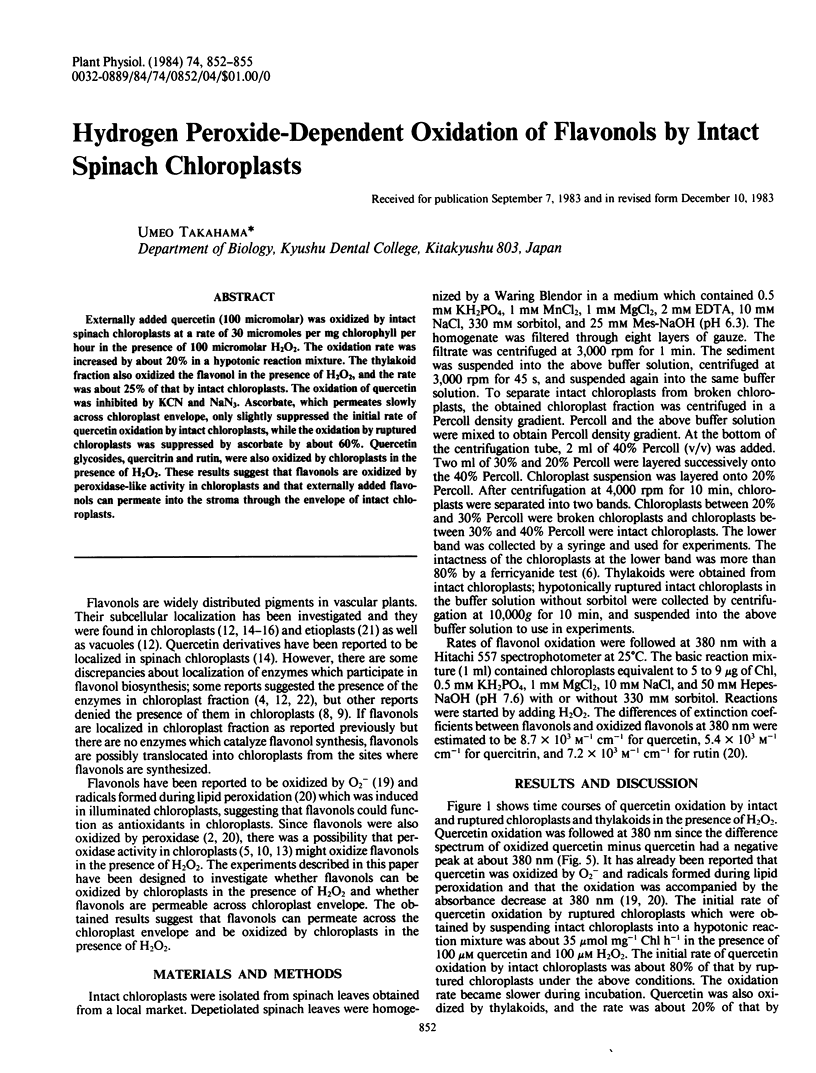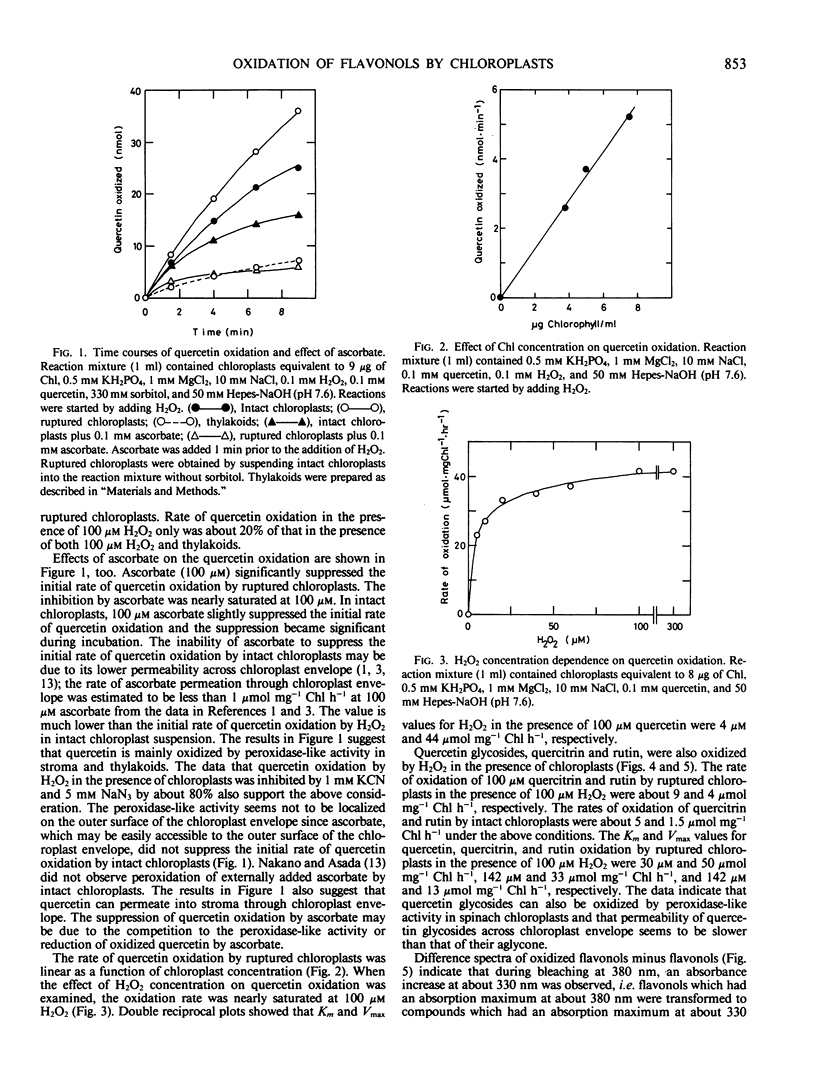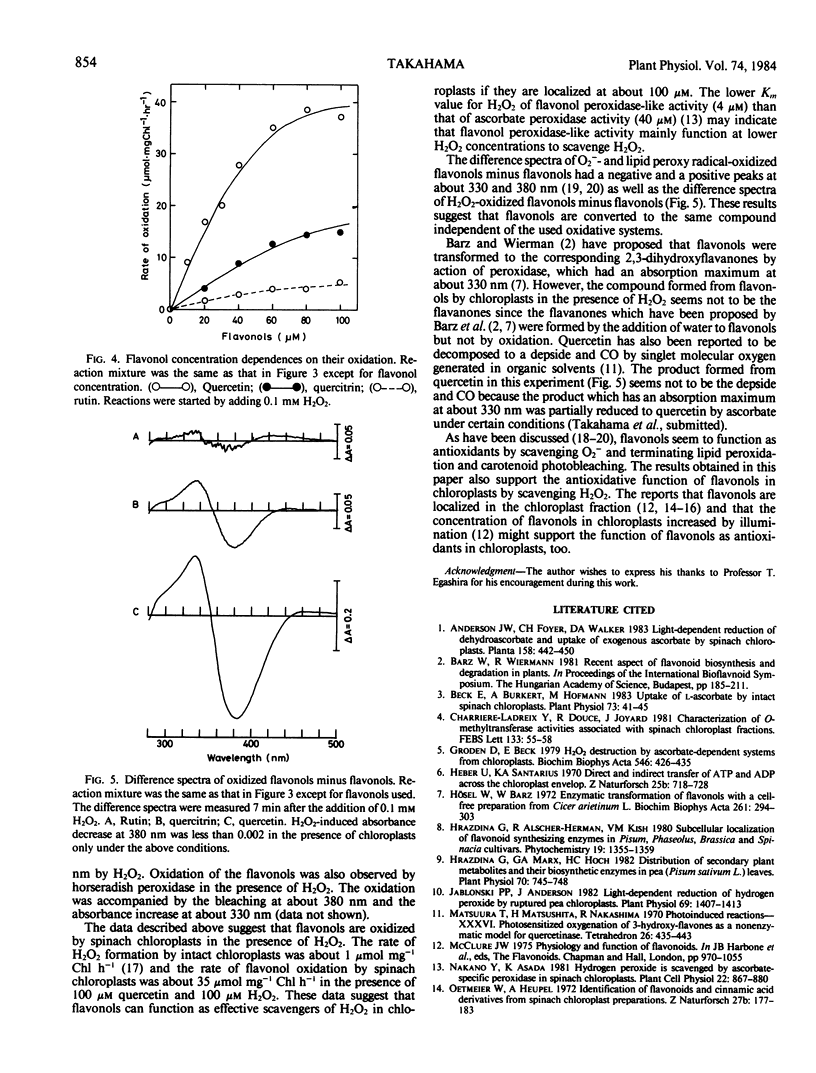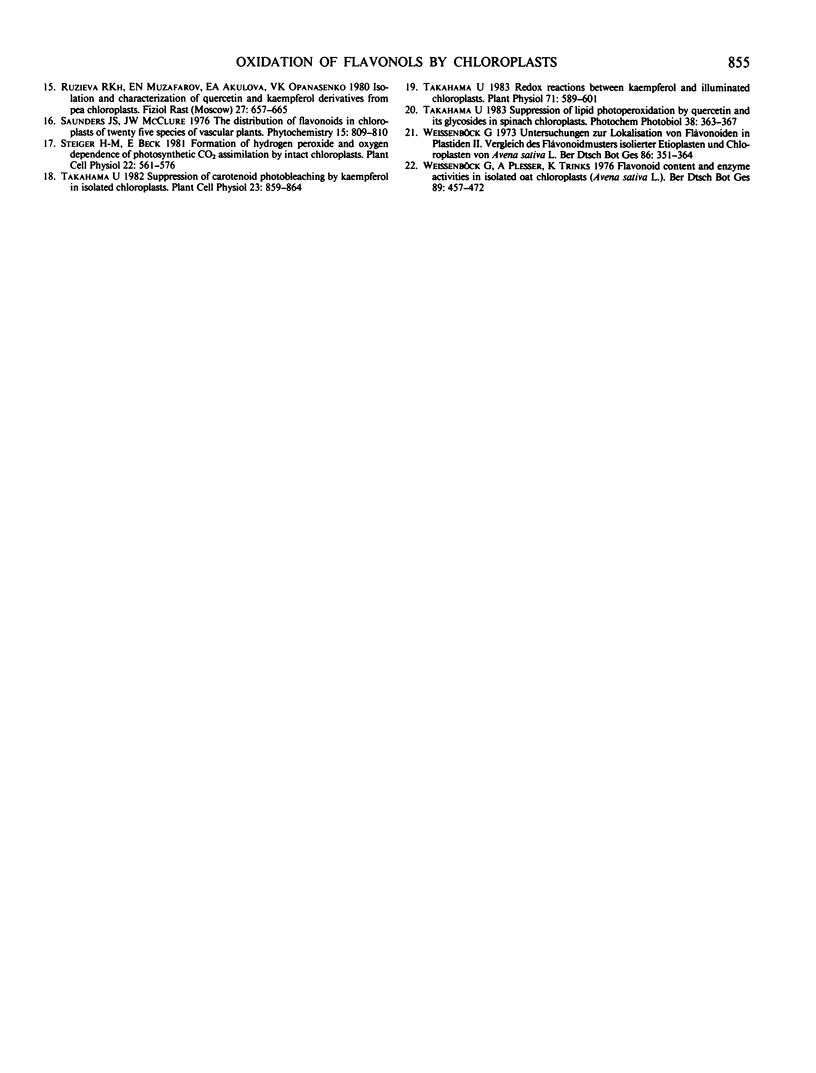Abstract
Externally added quercetin (100 micromolar) was oxidized by intact spinach chloroplasts at a rate of 30 micromoles per mg chlorophyll per hour in the presence of 100 micromolar H2O2. The oxidation rate was increased by about 20% in a hypotonic reaction mixture. The thylakoid fraction also oxidized the flavonol in the presence of H2O2, and the rate was about 25% of that by intact chloroplasts. The oxidation of quercetin was inhibited by KCN and NaN3. Ascorbate, which permeates slowly across chloroplast envelope, only slightly suppressed the initial rate of quercetin oxidation by intact chloroplasts, while the oxidation by ruptured chloroplasts was suppressed by ascorbate by about 60%. Quercetin glycosides, quercitrin and rutin, were also oxidized by chloroplasts in the presence of H2O2. These results suggest that flavonols are oxidized by peroxidase-like activity in chloroplasts and that externally added flavonols can permeate into the stroma through the envelope of intact chloroplasts.
Full text
PDF



Selected References
These references are in PubMed. This may not be the complete list of references from this article.
- Beck E., Burkert A., Hofmann M. Uptake of l-Ascorbate by Intact Spinach Chloroplasts. Plant Physiol. 1983 Sep;73(1):41–45. doi: 10.1104/pp.73.1.41. [DOI] [PMC free article] [PubMed] [Google Scholar]
- Groden D., Beck E. H2O2 destruction by ascorbate-dependent systems from chloroplasts. Biochim Biophys Acta. 1979 Jun 5;546(3):426–435. doi: 10.1016/0005-2728(79)90078-1. [DOI] [PubMed] [Google Scholar]
- Heber U., Santarius K. A. Direct and indirect transfer of ATP and ADP across the chloroplast envelope. Z Naturforsch B. 1970 Jul;25(7):718–728. doi: 10.1515/znb-1970-0714. [DOI] [PubMed] [Google Scholar]
- Hrazdina G., Marx G. A., Hoch H. C. Distribution of Secondary Plant Metabolites and Their Biosynthetic Enzymes in Pea (Pisum sativum L.) Leaves : Anthocyanins and Flavonol Glycosides. Plant Physiol. 1982 Sep;70(3):745–748. doi: 10.1104/pp.70.3.745. [DOI] [PMC free article] [PubMed] [Google Scholar]
- Hösel W., Barz W. Enzymatic transformation of flavonols with a cell-free preparation from Cicer arietinum L. Biochim Biophys Acta. 1971 Feb 28;261(2):294–303. doi: 10.1016/0304-4165(72)90050-5. [DOI] [PubMed] [Google Scholar]
- Jablonski P. P., Anderson J. W. Light-dependent reduction of hydrogen peroxide by ruptured pea chloroplasts. Plant Physiol. 1982 Jun;69(6):1407–1413. doi: 10.1104/pp.69.6.1407. [DOI] [PMC free article] [PubMed] [Google Scholar]
- Oettmeier W., Heupel A. Identification of flavonoids and cinnamic acid derivatives from spinach chloroplast preparations. Z Naturforsch B. 1972 Feb;27(2):177–183. doi: 10.1515/znb-1972-0213. [DOI] [PubMed] [Google Scholar]
- Takahama U. Redox Reactions between Kaempferol and Illuminated Chloroplasts. Plant Physiol. 1983 Mar;71(3):598–601. doi: 10.1104/pp.71.3.598. [DOI] [PMC free article] [PubMed] [Google Scholar]


